King champions Palestinian rights at UNGA as Europe expands recognition of statehood
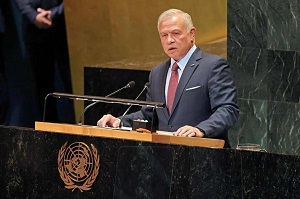
The Jordan Times
AMMAN — A wave of European recognitions of the State of Palestine gained momentum this week, coinciding with His Majesty King Abdullah’s address on Tuesday at the 80th session of the United Nations General Assembly (UNGA) in New York.
France and Belgium have joined the UK, Portugal, Canada and Australia in formally recognising a Palestinian state.
The decisions, unveiled during the week of high-level UNGA meetings, were widely viewed as a turning point in international efforts to revive the stalled peace process.
Spain, Ireland and Norway officially recognised a Palestinian state in 2024.
In October 2014, Sweden became the first EU member state to recognise the state of Palestine.
Jordan has long championed the two-state solution, and the latest recognitions came as King Abdullah used his UNGA speech to press the case for Palestinian statehood.
The King stressed that Palestinian statehood is “not something Palestinians need to earn… it is an indisputable right.” He asked world leaders: “How long will it be before we recognise the Palestinians as people who aspire to the same things you and I do , and we act on that recognition?”.
His Majesty also warned that Israel’s continued settlement expansion and provocations at Muslim and Christian holy sites in Jerusalem could ignite a wider religious conflict.
On the sidelines of the General Assembly, Jordan intensified its diplomatic engagement. Deputy Prime Minister and Minister of Foreign Affairs Ayman Safadi took part in a high-level meeting hosted by France on Wednesday to discuss ending the Gaza war and coordinating humanitarian support. The gathering underscored the urgency of achieving a permanent ceasefire and preparing for post-war reconstruction.
US President Donald Trump, who also joined discussions during the UNGA week, described the engagement with Middle Eastern leaders as “an important step towards regional stability”, voicing optimism that dialogue could help bring the Gaza war to an end.
Former minister and political analyst Samih Maaytah said the momentum reflects “a critical juncture that combines mounting European recognition with active US involvement”. He noted that the recognitions “are not isolated developments but the outcome of sustained Jordanian diplomacy led by His Majesty the King, who consistently placed the Palestinian cause at the centre of international debate”.
Analysts noted that while the recognitions represent a breakthrough, divisions within Europe remain.
Ahmad Qudah, Director of Media and Communications at the Politics and Society Institute, said the divergence between countries that recognise Palestine unconditionally and others that attach political conditions reflects “domestic political calculations more than a unified strategic vision”.
“This reveals the limits of Europe’s role compared with the United States. On the one hand, there is growing acknowledgement of Palestinian rights; on the other, the effectiveness of these recognitions remains limited unless translated into a coherent European policy able to influence power balances or impose obligations on Israel.”
Al Rai journalist and political analyst Hakeem Gralleh, however, viewed the recognitions as “a political and legal gain that affirms the legitimacy of the Palestinian cause”, crediting Jordan’s diplomacy. “
King Abdullah’s sustained engagement has created momentum in support of Palestinian rights and revived the two-state solution as the only viable framework for peace,” he said.
Gralleh added that the recognitions should be seen as “a first step in the right direction”, urging the international community to build on them through a political process that halts violence, secures a lasting ceasefire and opens the way for comprehensive peace talks with strong US involvement.
Latest News
-
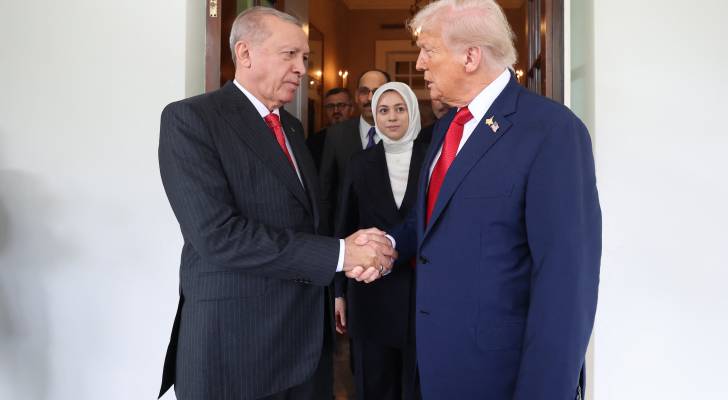 Trump hints at F-35 jets for Turkey if Ankara quits Russian oil
Trump hints at F-35 jets for Turkey if Ankara quits Russian oil
-
 King champions Palestinian rights at UNGA as Europe expands recognition of statehood
King champions Palestinian rights at UNGA as Europe expands recognition of statehood
-
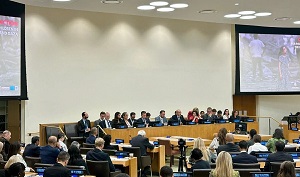 In presence of Queen, foreign minister urges global action to protect Palestinian children
In presence of Queen, foreign minister urges global action to protect Palestinian children
-
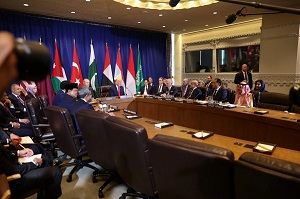 King stresses importance of working with US on plan to end war in Gaza
King stresses importance of working with US on plan to end war in Gaza
-
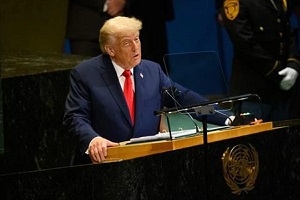 Trump mocks UN on peace and migration in blistering return
Trump mocks UN on peace and migration in blistering return